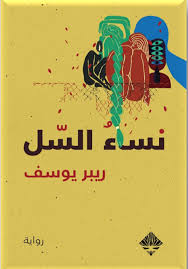Stories that begin, develop, become complicated, and are interrupted before they resume again. Their heroines: Siranah, Selti, Salma, Khansi, Aishana, women whose paths and destinies intersected in that charming region of northeastern Syria, with which the “Berlin-Baghdad Railway” tampered with and the destinies of its residents. .
From the plains of Mardin, the cities of Amuda and Ras al-Ain, and the villages of Shorik, Kondak, and Tal Halaf, these women whisper secrets in their low, intermittent voices filled with fear and illness. But their stories and songs go beyond their bodies’ struggle with tuberculosis, to immortalize the struggles of the Yazidis, Syriacs, and Armenians with oppression, massacres, and eternal alienation.
In Women of Tuberculosis, Reber Youssef, with his poetic language and his special sensitivity, explores the northeastern region of Syria, including its diversity: ethnic, religious, and racial, relying on in-depth historical, geographical, and anthropological research into what people live in that part of the earth, but he... Through his work, he creates a curiosity to explore history once again, after the northeast of the country now has the face of a woman.
